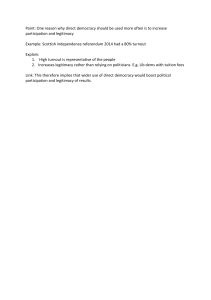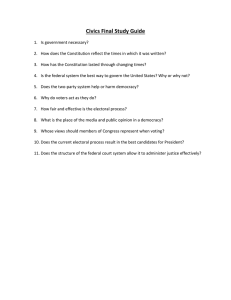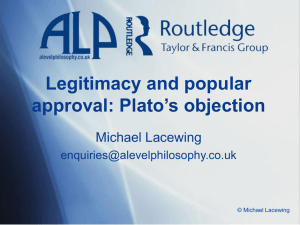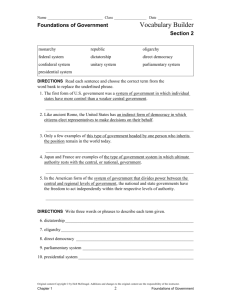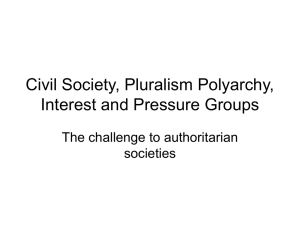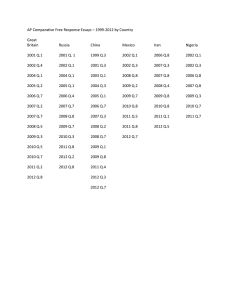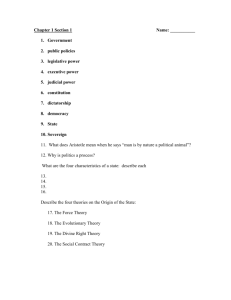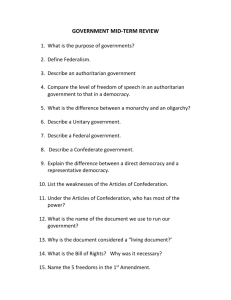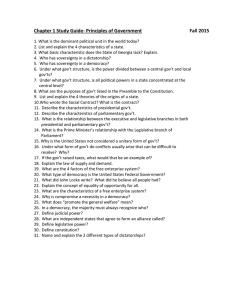Click here for the possible exam FRQs
advertisement
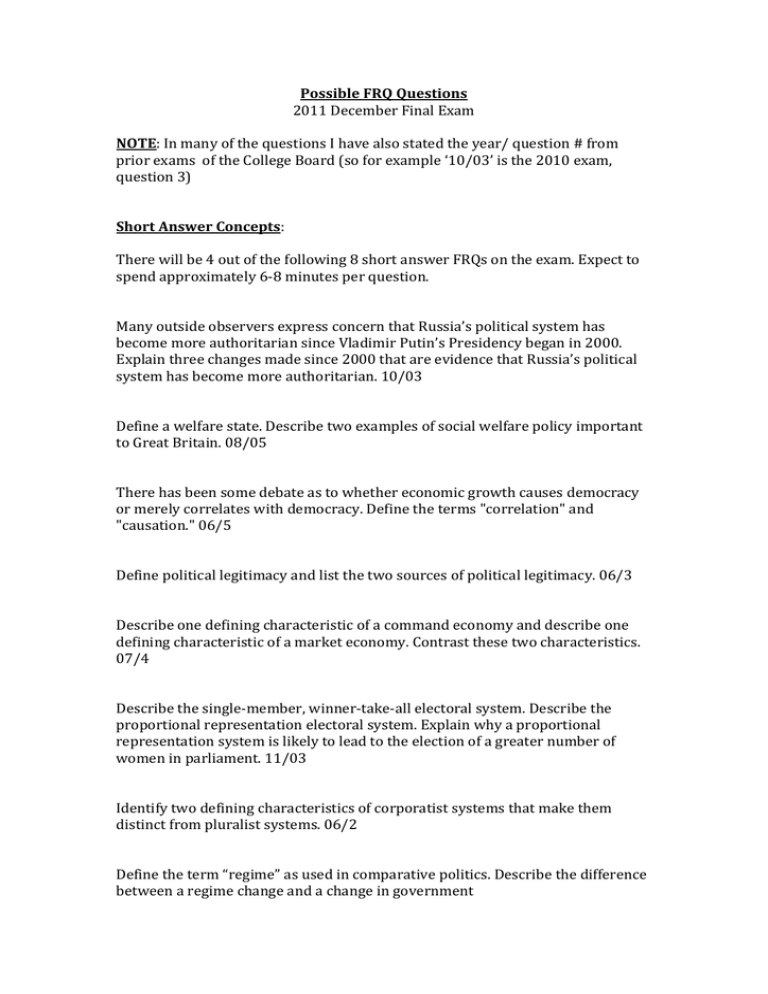
Possible FRQ Questions 2011 December Final Exam NOTE: In many of the questions I have also stated the year/ question # from prior exams of the College Board (so for example ‘10/03’ is the 2010 exam, question 3) Short Answer Concepts: There will be 4 out of the following 8 short answer FRQs on the exam. Expect to spend approximately 6-8 minutes per question. Many outside observers express concern that Russia’s political system has become more authoritarian since Vladimir Putin’s Presidency began in 2000. Explain three changes made since 2000 that are evidence that Russia’s political system has become more authoritarian. 10/03 Define a welfare state. Describe two examples of social welfare policy important to Great Britain. 08/05 There has been some debate as to whether economic growth causes democracy or merely correlates with democracy. Define the terms "correlation" and "causation." 06/5 Define political legitimacy and list the two sources of political legitimacy. 06/3 Describe one defining characteristic of a command economy and describe one defining characteristic of a market economy. Contrast these two characteristics. 07/4 Describe the single-member, winner-take-all electoral system. Describe the proportional representation electoral system. Explain why a proportional representation system is likely to lead to the election of a greater number of women in parliament. 11/03 Identify two defining characteristics of corporatist systems that make them distinct from pluralist systems. 06/2 Define the term “regime” as used in comparative politics. Describe the difference between a regime change and a change in government Conceptual Analysis There will be 1 out of the following 2 conceptual analysis questions on the exam. Expect to spend approximately 30 minutes on this question. There are a variety of arrangements of power in executive-legislative relationships. (2009) (a) Describe the process used in a parliamentary system for the selection of the chief executive. (b) Contrast the process you described in part (a) with the process used in a presidential system for the selection of the chief executive. (c) Describe the process used in a parliamentary system for removing the chief executive. (d) Contrast the removal process you described in part (c) with the process used in a presidential system for removing the chief executive. (e) Other than the removal process, describe a check on executive power within a parliamentary system. Democracies have been categorized as liberal and illiberal: (a) Describe one similarity and one difference between an illiberal democracy and liberal democracy. (b) Identify an institution that would need to be changed to make an illiberal democracy more liberal. (c) Describe a change to the institution you identified in (b) that would facilitate a shift from illiberal to liberal democracy. (d) Explained why the change you described in part (c) would lead to a more liberal democracy. 09/6 Country Context There will be 1 out of the following 2 country context questions on the exam. Expect to spend approximately 15-20 minutes on this question. Political Legitimacy is a fundamental concept in comparative politics and is important for governments as well as citizens. a. Define political legitimacy b. Describe two ways in which political legitimacy is achieved in the U.K.. c. Explain two ways that legitimacy impacts governmental effectiveness. Free, fair and competitive elections are an important part of a democratic society. (Wood) (a) describe two electoral reforms provided for in the Russian Constitution of 1993 (b) Identify two features of the current Russian electoral system that have been criticized as undemocratic and explain why each feature is undemocratic
